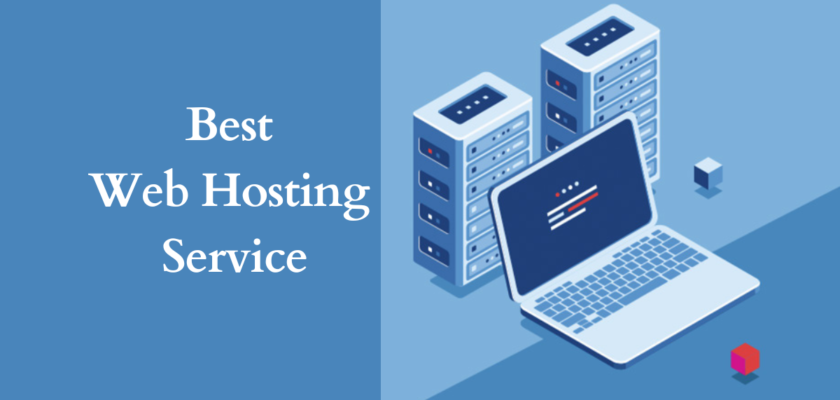Choosing the right web hosting service is a crucial decision that can significantly impact your website's performance and success.
With numerous options available in the market, it's important to understand the key factors to consider before making a decision.
In this article, we will explore the essential elements of selecting the best web hosting service for your website and how it can positively impact your online presence.
Assessing Your Website's Needs
Before diving into the sea of web hosting providers, it's essential to assess your website's needs and requirements. This step will help you narrow down your choices and ensure that you choose a hosting service that can accommodate your specific goals.
1-Determining your website's purpose and target audience
Begin by asking yourself the purpose of your website. Is it an e-commerce site, a blog, or a portfolio?
Understanding your website's purpose will help you determine the specific features and resources you'll need from a web host.
Consider your target audience as well – their location, demographics, and expected traffic.
2-Analyzing your website's resource requirements: storage, bandwidth, and scalability
Next, analyze the resource requirements of your website. Assess the amount of storage you'll need for your website files, images, and databases. Consider the bandwidth required to handle your expected traffic.
Additionally, think about the scalability potential of your website. Will you need to increase your resources as your site grows?
These factors will help you choose a hosting service that can handle your website's demands effectively.
3-Identifying essential features and technical specifications for your website
To ensure a seamless user experience, identify the essential features and technical specifications your website requires.
For instance, if you plan to run an online store, you'll need a hosting service that supports SSL certificates for secure transactions. If you're using a content management system like WordPress, ensure the hosting provider offers compatible hosting environments.
Make a checklist of must-have features and technical requirements to compare hosting services effectively.
4-Evaluate pricing and budget
Types of Web Hosting Services
The different types of Web Hosting include:
A. Shared Hosting
Shared hosting involves hosting multiple websites on a single server, sharing resources such as CPU, RAM, and storage. Shared hosting is budget-friendly, often starting at a few dollars per month. It is ideal for small websites, personal blogs, and startups with moderate traffic.
Example: Bluehost, HostGator, SiteGround
Pros: It's cost-effective, making it an excellent choice for beginners or those with small websites. The hosting provider manages server maintenance and configuration.
Cons: Resources are shared, so performance may be impacted by other websites on the same server. It's not suitable for high-traffic or resource-intensive websites.
B. Virtual Private Server (VPS) Hosting
VPS hosting provides a virtualized private server within a larger physical server, offering more control and resources than shared hosting. VPS hosting is mid-range, providing a balance between shared and dedicated hosting. It is ideal for growing websites, small to medium-sized businesses that need more control and resources
Example: A2 Hosting, InMotion Hosting
Pros: It offers better performance and control compared to shared hosting. Users have their virtual space with dedicated resources.
Cons: It is more expensive than shared hosting and may require some technical knowledge for setup and management.
C. Dedicated Server Hosting
Dedicated hosting allocates an entire physical server to a single website, providing maximum control, performance, and security. Dedicated server hosting comes with a higher cost, making it suitable for large enterprises and applications with high resource demands. It is ideal for high-traffic websites, complex applications, and enterprises with specific server requirements.
Example: InMotion Hosting (Dedicated Servers)
Pros: It offers full control over the server, ensuring high performance and optimal security. It's suitable for resource-intensive applications.
Cons: It is the most expensive hosting option and requires technical expertise for server management.
D. Cloud Hosting
Cloud hosting uses a network of virtual servers to deliver a flexible and scalable hosting environment. Cloud hosting follows a pay-as-you-go model, potentially making it cost-effective. It is best for websites with fluctuating traffic, scalable needs, and businesses requiring a dynamic hosting environment.
Example: OVH Cloud
Pros: It is highly scalable, flexible, and reliable. Resources can be adjusted based on demand, and users only pay for what they use.
Cons: Costs can vary based on usage, and there might be a learning curve for those new to cloud infrastructure.
E. Managed WordPress Hosting
Managed WordPress hosting is specifically optimized for hosting WordPress websites, often including maintenance and updates. Managed WordPress hosting is moderately priced, varying among providers. It is best for WordPress-based websites, blogs, and online stores where content management and user experience are crucial.
Example: Kinsta, SiteGround (Managed WordPress)
Pros: It is optimized for WordPress, ensuring high performance. Providers handle routine maintenance tasks, making it user-friendly.
Cons: It is specialized for WordPress sites, potentially limiting customization compared to other hosting types.
Read more: Shared, VPS & Dedicated Web Hosting Providers Comparison & Recommendations
Factors to Consider when Choosing a Web Host
Now that you have a clear understanding of your website's needs, let's explore the critical factors to consider when choosing a web host.
1-Pricing and Value for Money
Pricing is undoubtedly an important factor when selecting a web hosting service. Determine your budget and consider the pricing models that align with your needs.
Some hosting providers offer shared hosting, which is cost-effective for small websites, while others provide dedicated hosting for higher performance and control.
Compare prices and included features from different providers to ensure you're getting the best value for your money.
Additionally, assess the long-term value and scalability potential of the chosen web hosting service to avoid unexpected costs in the future.
2-Reliability and Uptime Guarantees
The uptime of your website is crucial for its availability to visitors. The following steps should be followed regarding uptime guarantees and the reliability of the website:
- Research the uptime track record of potential hosting providers.
- Look for providers that offer uptime guarantees, ensuring that your website remains accessible to users at all times.
- Check user reviews and testimonials to determine the reliability of the hosting services you're considering.
- Positive experiences from other users indicate a hosting provider that takes uptime seriously.
3-Customer Support and Technical Assistance
Customer support becomes vital when technical issues arise. Assess the availability and responsiveness of customer support channels. Hosting providers that offer 24/7 support through various channels like live chat, phone, or email can be valuable in times of need. Evaluate the quality and expertise of the technical assistance provided by hosting companies. A knowledgeable support team can troubleshoot problems quickly and efficiently. Seek recommendations and reviews to gauge the customer support experiences of other users.
4-Security Features and Data Protection
Security is of utmost importance when it comes to web hosting. Ensure the hosting service provides robust security measures to protect your website and user data. Look for SSL certificates to provide secure connections and protect sensitive information. Firewall protection and malware scanning capabilities are also essential to prevent attacks and data breaches. Review the backup options and data retention policies hosting providers offer to ensure adequate backup and recovery solutions.
5-Scalability and Future Growth Potential
While evaluating web hosting services, it's important to anticipate your website's future needs and growth potential. Consider whether the hosting service offers scalability options and the possibility of upgrading your resources as your website expands. Evaluate the ease of migration and transfer processes to ensure a smooth transition if you need to switch hosting providers in the future. Choosing a web host that caters to your website's growth can save you time and effort down the road.
Conclusion
Choosing the best web hosting service for your website is a critical decision that can greatly impact your online presence. By assessing your website's needs, and considering factors such as pricing, reliability, customer support, security, and scalability, you can make an informed decision. Aligning your website's requirements with the offerings of the chosen hosting provider is key to achieving optimal website performance and success. Remember, investing time and effort into selecting the right web hosting service is a worthwhile endeavor that pays dividends in the long run.
Frequently Asked Questions (FAQs)
Here are some common questions related to choosing a web hosting service:
How do I transfer my website to a new web hosting service?
Transferring your website to a new web hosting service involves several steps. First, choose a new hosting provider that meets your requirements. Then, back up your website files and databases from your current hosting account. Finally, upload the files to the new hosting provider and update your domain's DNS settings to point to the new server. It's recommended to seek technical assistance or follow detailed guides provided by both the old and new hosting providers to ensure a seamless transfer.
What is the difference between a domain name and web hosting?
A domain name is the URL or web address that users enter to visit your website (e.g., www.example.com). On the other hand, web hosting refers to the service that stores your website's files and makes them accessible on the internet. While a domain name is like your website's address, web hosting is the physical space where your website resides.
Can I switch my web hosting service in the future if my needs change?
Yes, switching web hosting services is possible if your needs change. However, the process can differ depending on the hosting provider. Some hosting companies offer migration services to help you seamlessly move your website. Keep in mind that it's crucial to back up your website before making any changes and ensure compatibility between the old and new hosting environments.
How can I ensure the security of my website with the chosen web hosting service?
To ensure the security of your website, choose a hosting provider that offers robust security measures. Check for SSL certificates to establish secure connections. Look for features like firewall protection and automated malware scanning. Additionally, regularly update your website's software and plugins to patch any vulnerabilities. Implement strong passwords and regularly back up your website to protect your data.
What are the consequences of choosing an unreliable web hosting service?
Opting for an unreliable web hosting service can have various negative repercussions. Frequent downtime can result in your website being inaccessible to visitors, leading to a loss of potential customers or readers. Slow website loading times can frustrate users and drive them away. Poor customer support and technical assistance can leave you stranded when facing issues. Additionally, an insecure hosting service can lead to data breaches and compromise sensitive information.





